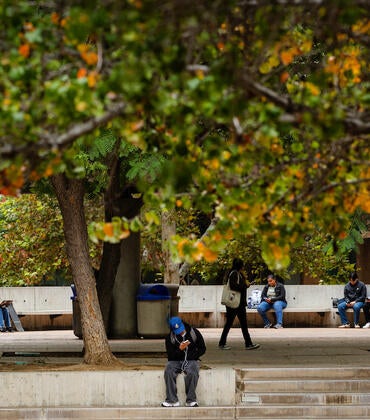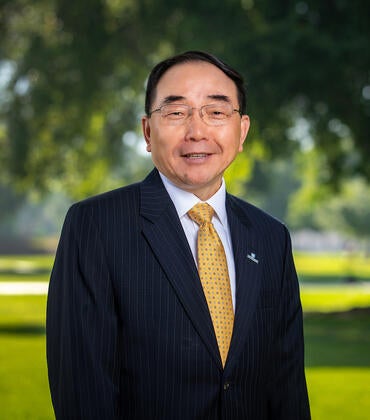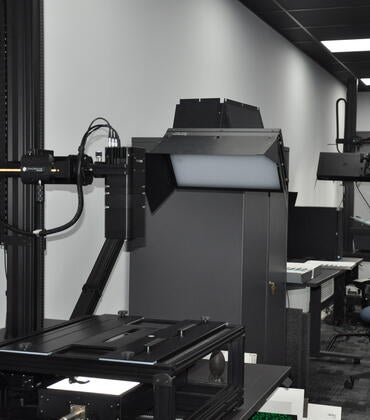Historically, when creating healthy campuses, universities have focused on the health of students but not of administrators, faculty members, and staff. A team of researchers at the University of California, Riverside, has challenged this trend by focusing on the health of the entire campus community.
Reporting in Progress in Community Health Partnerships: Research, Education, and Action, published by Johns Hopkins University Press, the researchers found this collective approach, which they named the Healthy Campus Initiative, or HCI, created a healthier and more equitable campus community.
“When we think about the health of those in university settings, we often think of student health and staff/faculty health as separate and individualized rather than as a collective campus concern,” said lead author Ann Cheney, an assistant professor in the UC Riverside School of Medicine’s Department of Social Medicine, Population, and Public Health. “HCI allowed us to think beyond individual level health to community and population health. Our overall goal was to infuse health into teaching, scholarship, business practices, and institutional policies in order to build a culture of health on campus.”
HCI follows the Robert Wood Johnson Foundation Culture of Health Action Framework that focuses on making health a shared value, fostering cross-sector collaborations, creating healthier and more equitable communities, and strengthening integration of health services and systems.
The research paper presents what the UCR team learned from the HCI between 2016 and 2018, and examines how applicable the framework is in building cultures of health.
Specific activities the HCI focused on include increasing physical fitness through stairwell usage and educating the campus on marijuana and tobacco policy. The researchers also made efforts to create more appealing and accessible walking spaces and designed health and wellbeing campaigns to reach all administrators, faculty members, staff, and students at UCR.
Surveys found overall community stairwell usage increased by nearly 80% and positive perception of the UCR environment increased by more than 87%.
“The ‘Take the Stairs’ campaign, a UC-wide initiative, nicely illustrates how this HCI activity created more community resources that elevated both individual and campus health and well-being,” said co-author Julie Chobdee, wellness program coordinator at UCR. “We put up beautiful signage at specific locations throughout campus to encourage the campus community to take the stairs if able.”
The researchers also focused on mental health by addressing anxiety, depression, and feelings of isolation. Female international students attended a meet-and-greet that offered free massages, food, and a relaxing environment to interact with other women, share experiences, and learn about mental health resources. A photovoice exhibit, spearheaded by Cheney, raised awareness of the needs of students in substance use addiction recovery. The researchers also held workshops on nutrition education and cooking to increase knowledge of plant-based proteins and sustainable production practices.
Key campus partners in the HCI include the offices of the executive vice chancellor, academic senate, student affairs, business and administration, as well as the School of Medicine, Staff Assembly, Associated Students, Graduate Student Association, Environmental Health and Safety, and Campus Planning. The research team also partnered with the Riverside County Public Health Department and the Riverside Mayor’s Office.
Collaboration with the School of Medicine played a key role in the HCI’s success. Co-author Dr. Deborah Deas, vice chancellor for health sciences and Mark and Pam Rubin Dean of the medical school, serves as “Champion for Healthy Campus” and provides updates to campus leadership on the health of the campus. Deas promoted the HCI in the school’s bimonthly newsletter and encouraged broad participation from campus stakeholders.
“Part of our mission at the School of Medicine is to improve the health of our communities; therefore, being a champion for the HCI aligned with our mission,” she said. “The HCI gave us an opportunity to collaborate across schools, colleges, and units at UCR to create an environment of health and wellness at all levels. It has been gratifying to see this work continue to develop and truly become part of our culture at UCR.”
The project was initially supported by the UC Office of the President and has received some support from UCR.
“We hope the campus will continue to invest in HCI, demonstrating the commitment to student, faculty, and staff wellbeing,” Chobdee said.
Cheney, Chobdee, and Deas were joined in the research by Kaitlynn McCulloh and Evelyn Vázquez of UCR; and Eddy Jara of the Riverside University Health System — Public Health.
The research paper is titled “Engaging Stakeholders in the Healthy Campus Movement.”



